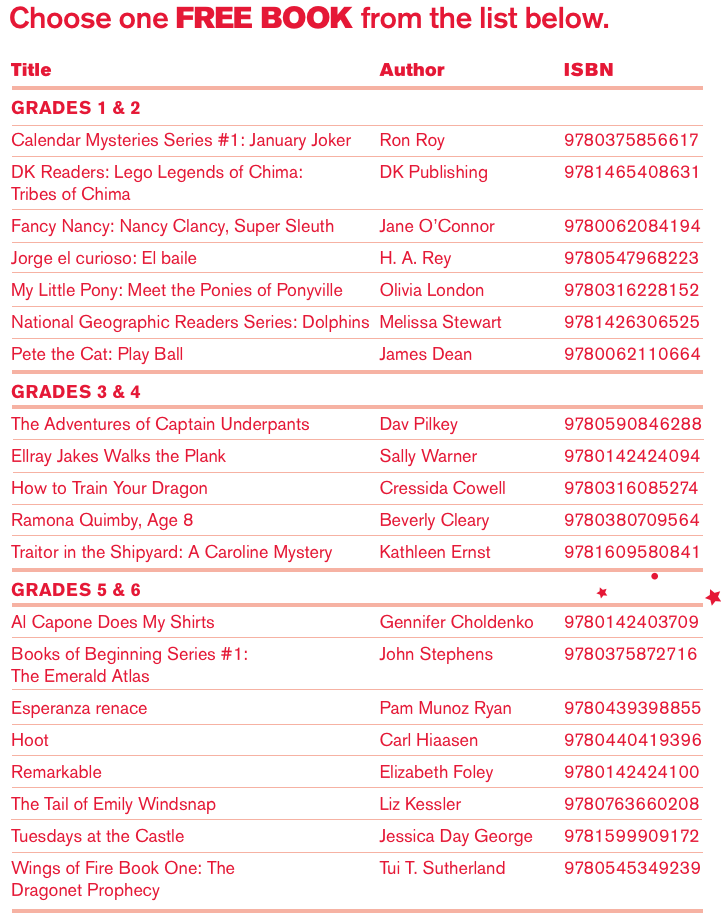So, in 2005, Nature published a study by a group of researchers at Rutgers University showing that Jamaican teenagers who exhibited a high degree of body symmetry were judged (by other teenagers) to be better dancers than those with less symmetrical bodies. The study was an exploration of the idea that physical symmetry might be a trait subject to sexual selection — with “good dancers” serving as a proxy for “attractive mates.”
In 2013, Rutgers basketball coach Mike Rice received a $475,000 severance after video footage surfaced showing Rice pelting his players with basketballs, grabbing and shoving them, and shouting obscenities at them.
What do these two stories have in common? The stories reveal how Universities are not motivated by their stated missions (truth, education, etc.), so much as by a drive for money and prestige. As a friend of mine recently put it, “Pursuing truth is great, just don’t let it get in the way of your careerism.”
Now, you may be wondering how you can get a job at a University where you get to abuse students, and if you get caught and fired, you still walk away with nearly half a million dollars. I mean, you probably thought you could only get a job like that in an S & M dungeon, or maybe the CIA.
Here’s what pisses me off about the whole thing. Rice did not lose his job for abusing his players. He lost his job for embarrassing the University. When the video first surfaced, everything was handled in house. Rice was given a three-game suspension and a $50,000 fine — secretly. Then, when the video showed up on line, he was fired, along with an assistant coach and the athletic director (who received a $1.25 million severance package). (Here‘s one version)
Some players have argued that Rice’s behavior was not as bad as it appears on the video, and David Plotz argued in Slate that this type of behavior from his own high-school coach made him “a better player and a better man.” Maybe they’re right. Maybe we would all be better off if we were berated regularly for our shortcomings. There’s a balance in there somewhere between “preventing bullying” and raising a generation of hothouse flowers, and I’m not always convinced that we, as a society don’t veer too far in the direction of kid gloves.
The point is, you can imagine defending having a coach like Mike Rice. Likewise, you can imagine arguing that behavior like Rice’s is absolutely unacceptable in a University setting. What is bullshit is internally saying, yes, Mike Rice is great, he just needs to tone it down a notch, and then, when the public finds out, being all, “Oh my god! I can’t believe this was happening!” Basically, the sense you get is that no one was interested in figuring out what the right thing to do was. Everyone was motivated by protecting their own careers, and deflecting embarrassment away from the University.
So how does this relate to dancing teenagers in Jamaica?
The 2005 paper had seven co-authors, but the three key players are Robert Trivers and Lee Cronk, both from the Rutgers Anthropology Department, and William Brown (a postdoc at the time, now in the Psych department at University of Bedfordshire).
A couple of years after the paper came out, Trivers started to suspect that Brown had manipulated the data to make the results more compelling than they actually were. He went on to detail his analysis in a book published in 2009.
So what happens when one of the authors of a high profile paper comes out and claims that the results presented in the paper were not just wrong, but fraudulent? A news piece just out at Nature notes that Trivers approached Nature in 2008 about retracting the paper, but they were not interested. After all, why would they be? Nature’s business plan hinges on publishing studies that are exciting — studies that will be cited by a lot of other papers, and that will attract a lot of attention from the popular press.
This means that Nature (and other high-impact journals like Science) are particularly prone to a few types of bad papers. One is the shocking result that would lead to a major paradigm shift if it were true — but it is not true. One is the paper that seems to represent a huge advance, but is a modest advance that seems bigger than it is because it fails to cite much of the relevant literature. And one is the type we’re potentially talking about here, where a paper presents some really beautiful results, which are beautiful because the data has been manipulated in some way.
The problem is that this business model works great. The upsides of citations and press coverage apparently far outweigh the downsides of publishing incorrect, or incorrectly presented results. In general, there is not that much effort that goes into replicating results in science (arguably, a lot less than there should be). And even if a study fails to be replicated, and is shown to have been wrong, this typically happens years later, when no one is paying attention to the original study anymore.
That means that Nature and Science tend to have this funny status. In biology, anyway, everyone dismisses them as “magazines” or “tabloids.” At the same time, everyone is desperate to publish there.

So what do you do if you’re one of these journals? Well, if you are driven by a moral principle of promoting truth and spreading the best information possible, you put more effort into vetting papers up front, and when a paper is shown to be wrong, you actively try to correct the misperceptions stemming from the fact that people are saying, “Well, this was published in Nature, so it must be right.” On the other hand, if you are driven by the financial health of your corporation, you continue to publish things that will attract attention, and you retract or correct only when you absolutely have to, and you do it as quietly as possible, so as not to harm your brand.
Similarly, what do you do if you are a University associated with publishing a fraudulent paper? Again, if your guiding principles are truth and honest scholarship . . . oh, who am I kidding, those have not been the guiding principles of Universities for decades. As a University, your guiding principle is to maximize your money and prestige (to the extent that prestige begets money). That means that you will promote truth to the extent that you are required to do so, in order to maintain your brand as an important “research” and “education” institution. But what you really want is to keep the accusations of fraud as quiet as possible.
According to Trivers’s account of events, his going public with his book detailing the case for fraud, Rutgers was forced to undertake an investigation, since the work was supported in part by a grant from the NSF. Had they failed to do so, they might have become ineligible for NSF funds. When they completed their investigation in 2012, the University refused to make the results public. Trivers has posted the report on his own site (here). In brief, the report says that, yes, there is evidence for fraud in the paper (although the Nature news piece notes that Brown still denies having manipulated the data).
There’s another part of the story, though, that is much more disturbing. Trivers tells of an incident where he went to confront co-author Lee Cronk in his office about the situation. Trivers felt that Cronk had backed Brown’s version of events, and that the Rutgers report had vindicated his position over theirs, and he called Cronk a “punk.” Cronk then reported the incident to the campus police, and Trivers wound up getting banned from campus for alleged violation of the University’s anti-violence policy.
Now, clearly, I was not there, and so I have no independent source of knowledge about what happened that day. However, the version of event related by Trivers (read the whole thing here), sounds completely consistent with my own interactions with him. His version of the story suggests motivations and actions on the part of others:
It suggests that Cronk overreacted / acted punitively when Trivers confronted him. Maybe he was embarrassed and angry, and pretended to have felt physically threatened by Trivers in order to get back at him. Maybe he really did feel physically threatened, because, maybe, like most academics, he’s sort of a wuss. Maybe he overreacted in the heat of the moment, later wishing that he had not gotten the police involved. I don’t know. I’ve never met him, but this does pass the sniff test as the type of thing I can imagine a lot of Professor types doing.
It suggests that Rutgers sided against Trivers in the incident, perhaps out of retaliation for his original whistleblowing about the paper and the embarrassment and financial cost his actions imposed on the University. After all, if he had kept his mouth shut, they would not have had to undertake the whole fraud investigation, which I’m sure cost a bundle, and they would not have had the embarrassment of national press coverage. Again, clearly, I have no privileged details here, but this sounds like something you would do if you were a University that
I don’t want to pick on Rutgers in particular here. I think that this is the course of action that would have been taken by any University. That does not make it right, though.
I also don’t want to pick on Brown and Cronk, both of whom I suspect are perfectly bright and competent researchers. Even if Brown did actively manipulate the data, I see that as a pathology of the system, where getting a Nature paper can mean the difference between getting a job and not getting a job. If we didn’t hand out jobs and funding and promotions based on numbers of publications and citations — but rather on the quality and rigor of people’s research — there would not be incentives to manipulate or fabricate data. Even if Cronk maliciously got the Rutgers police to ban Trivers from campus, he did so in the context of a system that almost never rewards standing up and saying, “You know what, I was wrong.”
I know a lot of great scientists, people who are their own harshest critics, who are reluctant to publish results until they are 100% certain, who view even critical reviews of their manuscripts as good opportunities to make their work better. I also know a lot of scientists who are happy to cut corners, exaggerate the significance and importance of their results, and promote themselves, even, sometimes, at the expense of the truth.
Unfortunately, the way the current incentive system works, the latter group tend to have much better jobs than the former.
Until we can fix that, everything is going to conspire to encourage researchers to exaggerate, manipulate, and even fabricate their data. And everything is going to conspire to discourage Universities and journals from addressing and correcting fraudulent and erroneous results.
We have to reward honest, serious work that is not necessarily flashy. And we have to reward people who are willing to admit and correct mistakes.
Most of all, we have to reassert the principle of “truth” as our highest value in academia, and fight against its erosion by the secondary values of fame, prestige, and, most importantly, funding.
––––––––––––––––––––––––
Disclosure statements.
Since 2011, I have had an unpaid adjunct / visiting scholar position at Rutgers in the Genetics Department. During that time, I have gotten to know Trivers a bit, and we, in fact, have plans to work on a project together. In my experience, he is brilliant, boisterous, foul-mouthed, politically incorrect, and honest to a fault — exactly the sort of person all academics should aspire to be. Unfortunately, in their current incarnation, Universities much favor mediocre minds and personalities who will toe the corporate line, and who will bring funding to the University without inconvenient things like “truth” get in the way.
In elementary school, I was once on the losing side of a full-length, YMCA-league basketball game that ended 6 to 5. In junior high, I once attended a week-long basketball camp at the end of which I received the Orwellian “Most Improved Player” award.


